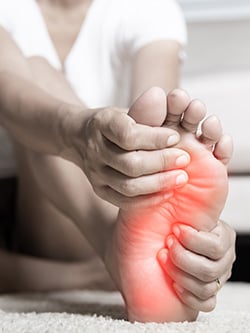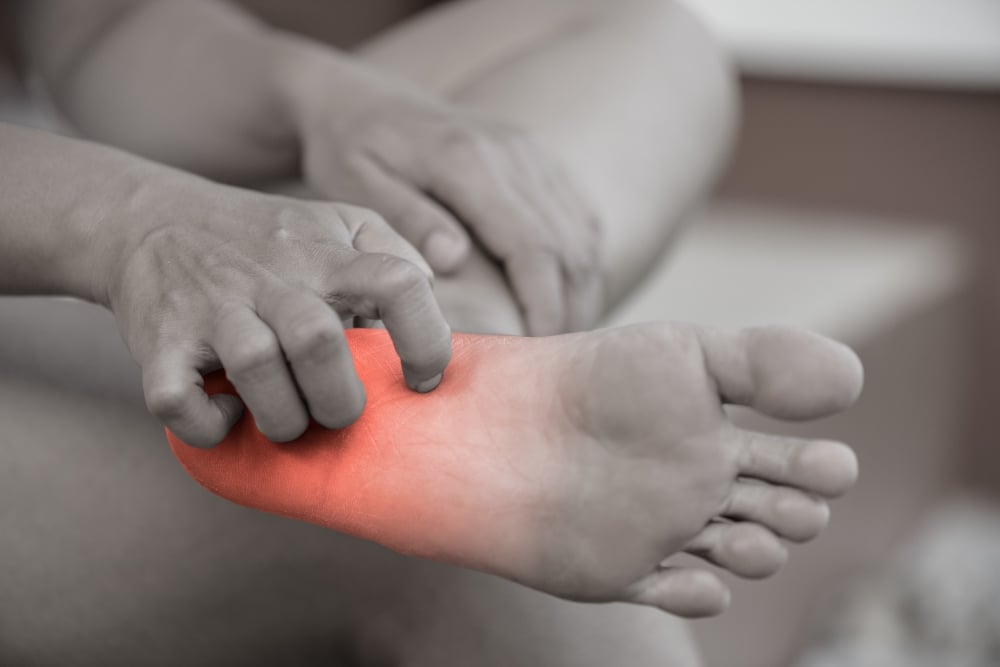Raising Awareness for Diabetic Neuropathy during Diabetes Awareness Month
Most are familiar with diabetes, a disease that occurs when your blood glucose or blood sugar is too high. While there is no cure for the disease, diabetes can be managed with medication and lifestyle changes. November is Diabetes Awareness Month, and November 14 is the annual celebration of World Diabetes Day, which help raise awareness for Type 1 and Type 2 diabetes. According to the Centers for Disease Control and Prevention, 30.3 million U.S. adults have diabetes, accounting for 9.4% of the U.S. population. Over time, diabetes can lead to several serious complications, which makes early detection and awareness about the disease even more essential.
What causes Type 1 Diabetes?
Type 1 diabetes occurs when your immune system attacks and destroys the insulin-producing beta cells of the pancreas. According to the National Institute of Diabetes and Digestive and Kidney Diseases, it is believed that type 1 diabetes is caused by genetics and environmental factors.
What causes Type 2 Diabetes?
Type 2 diabetes is more common among the population and is typically caused by lifestyle factors (i.e., overweight, obesity, and physical inactivity). In addition, certain genes may make you more likely to develop type 2 diabetes.
To learn more about the common symptoms and causes of both type 1 and type 2 diabetes, click here.
What are the health problems associated with diabetes?
The common health problems associated with diabetes include:
- Heart Disease & Stroke
- Low Blood Glucose (Hypoglycemia)
- Diabetic Neuropathy
- Kidney Disease
- Foot Problems
- Eye Disease
- Gum Disease & Other Dental Problems
- Sexual & Bladder Problems
Understanding diabetic neuropathy
Diabetics may experience a condition known as neuropathy, which is nerve damage that may occur from diabetes. Common symptoms of neuropathy include pain, numbness, tingling, and weakness in the hands and/or feet. Many people with diabetes may not be aware of this condition and how their nerves can be affected by the disease. However, with time, high blood sugar and high levels of fats in the blood from diabetes can damage your nerves, resulting in diabetic neuropathy. Did you know that diabetes is one of the most common causes of peripheral neuropathy in the country?
There are many different types of neuropathy. Patients who have diabetic neuropathy should implement a foot health regimen and explore conservative treatment options for neuropathy to lessen the symptoms of potential complications associated with the condition (e.g., physical therapy and medications). For those who do not benefit from conservative measures, surgical intervention can be a promising treatment option. Patients with diabetic neuropathy who fail to treat the condition are more prone to developing recurrent diabetic ulcers and are at a higher risk for amputation.
Dr. Michael Rose at the Institute for Advanced Reconstruction in New Jersey is highly skilled in complex nerve decompression surgery for people suffering from all forms of neuropathy; he is one of only a handful of plastic surgeons specifically trained in this technique.
If you are interested in learning more about our neuropathy program at The Institute for Advanced Reconstruction, please contact us or fill out the patient appointment request form.
Resources
https://www.diabetes.org/diabetes
https://www.cdc.gov/diabetes/data/statistics-report/index.html
https://www.niddk.nih.gov/health-information/diabetes/overview/what-is-diabetes






